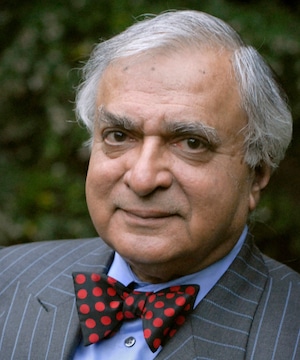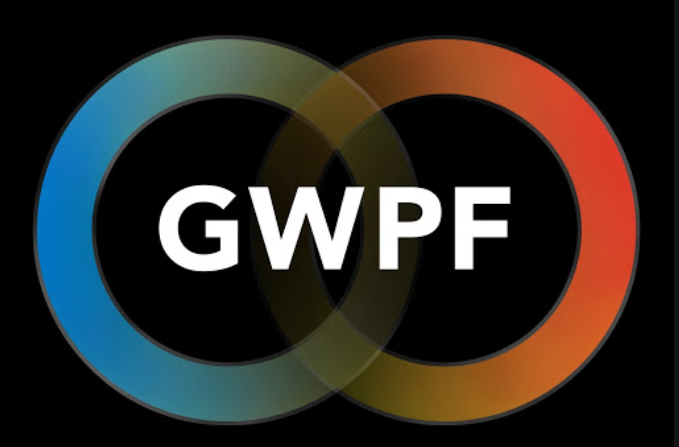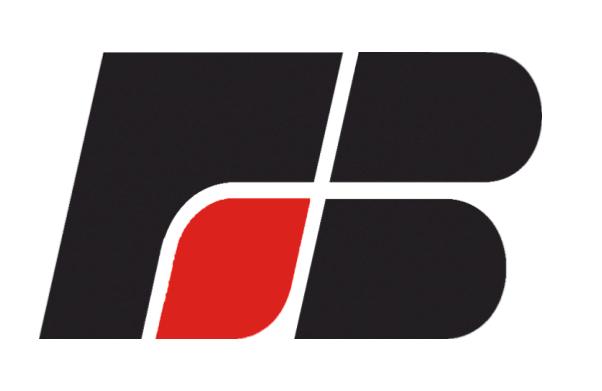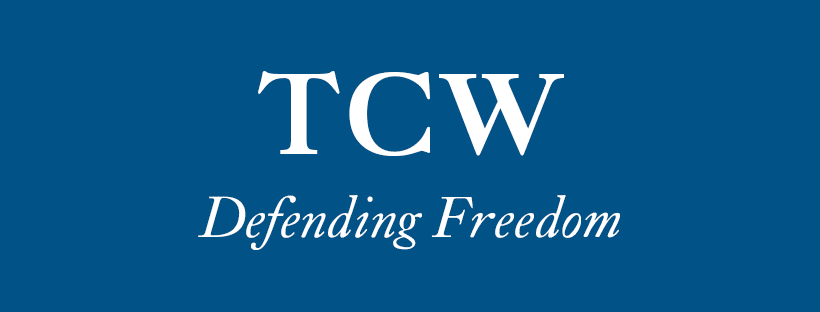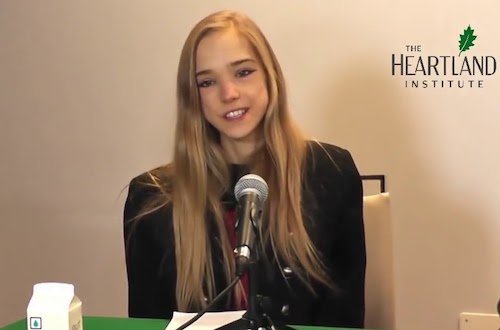Deepak Lal
Credentials
- B. Phil. Economics, Jesus College, Oxford, UK (1965)1“CURRICULUM VITAE: Deepak Kumar Lal” (PDF), February 2005. Retrieved from University of California, Los Angeles Economics Department website. Archived .pdf on file at DeSmog.
- B. Phil. Economics, Jesus College, Oxford, UK (1965)2“CURRICULUM VITAE: Deepak Kumar Lal” (PDF), February 2005. Retrieved from University of California, Los Angeles Economics Department website. Archived .pdf on file at DeSmog.
- B.A. Philosophy, Politics, Economics, Jesus College, Oxford, UK (1962)3“CURRICULUM VITAE: Deepak Kumar Lal” (PDF), February 2005. Retrieved from University of California, Los Angeles Economics Department website. Archived .pdf on file at DeSmog.
- B.A. History, St. Stephens College, Delhi, India (1959)4“CURRICULUM VITAE: Deepak Kumar Lal” (PDF), February 2005. Retrieved from University of California, Los Angeles Economics Department website. Archived .pdf on file at DeSmog.
Background
Deepak Lal was an economist, a professor of international development, and a senior fellow at the Cato Institute. Lal passed away on April 30, 2020 at age 80.5Ian Vásquez.”Remembering Deepak Lal,” Cato Institute, May 1, 2020. Archived June 27, 2021. Archive URL: https://archive.ph/0Z1nR
Deepak Lal was associated with the Institute of Economic Affairs (IEA), and was a founding member of the Global Warming Policy Foundation (GPWF)6T C A Srinivasa Raghavan. “Professor Deepak Lal Passes Away At 80,” Indian Business Standard, May 1, 2020. Republished by the Global Warming Policy Foundation. Archived September 30, 2021. Archive URL: https://archive.ph/fCHsO, a UK-based think tank founded in 2009 by former Conservative Chancellor Nigel Lawson with the purpose of combating what it describes as “extremely damaging and harmful policies” designed to mitigate climate change.”
Deepak Lal was a member of the UK Shadow Chancellor’s advisory group from 2000 to 2009, while the Labour Party was in power, and was a supporter of Brexit, the UK’s exit from the European Union.7“GWPF Launched Today!” The Global Warming Policy Foundation, November 23, 2009. Archived January 4, 2012.
In his non-academic writings, Deepak Lal sometimes cited work by physicist Henrik Svensmark attributing climate change to solar radiation cycles, to argue that “that humans cannot control the climate and must adapt as they have done for millennia to its continual changes.”8Deepak Lal. “Deepak Lal: Climate change: Ethics, science, economics – II,” Business Standard, February 5, 2013. Archived October 1, 2021. Archive URL: https://archive.ph/coxOO
Deepak Lal was born in Lahore, Pakistan in 1940. He was educated at Doon School, St Stephens, and Jesus College, Oxford.9“CURRICULUM VITAE: Deepak Kumar Lal” (PDF), February 2005. Retrieved from University of California, Los Angeles Economics Department website. Archived .pdf on file at DeSmog.
From 1963 to 1966, Lal was a member of the Indian Foreign Service, and a research administrator at the World Bank from 1984 to 1987. He was a consultant to the Indian Planning Commission, the World Bank, the Organization for Economic Cooperation and Development, and other United Nations agencies as well as national governments. 10“Deepak Lal,” Cato Institute. Archived March 23, 2021. Archive URL: https://archive.ph/My0uS
Lal was a professor of political economy at University College London before moving the the United States, becoming the James S. Coleman Professor of International Development Studies at UCLA in 1991.11“GWPF Launched Today!” The Global Warming Policy Foundation, November 23, 2009. Archived January 4, 2012. 12“CURRICULUM VITAE: Deepak Kumar Lal” (PDF), February 2005. Retrieved from University of California, Los Angeles Economics Department website. Archived .pdf on file at DeSmog.
Stance on Climate Change
June 16, 2013
In his Cato Institute-published book Poverty and Progress: Realities and Myths about Global Poverty, Deepak Lal described campaigns for climate action as the greatest threat to addressing poverty in developing nations. E. Calvin Beisner of the Cornwall Alliance for the Stewardship of Creation later quoted Lal’s book:13E. Calvin Beisner. “Climate Policies Kill through Fuel Poverty,” Cornwall Alliance, November 19, 2015. Archived September 30, 2021. Archive URL: https://archive.ph/jqJXb
“The greatest threat to the alleviation of the structural poverty of the Third World is the continuing campaign by western governments, egged on by some climate scientists and green activists, to curb greenhouse emissions, primarily the CO2 from burning fossil fuels.
[…]
“[I]t is mankind’s use of the mineral energy stored in nature’s gift of fossil fuels … [that] allowed the ascent from structural poverty which had scarred humankind for millennia.
“To put a limit on the use of fossil fuels without adequate economically viable alternatives is to condemn the Third World to perpetual structural poverty.”
July 17, 2007
In the second of two climate-related op-eds for Business Standard, “Climate Change: Ethics, science, economics – II,” Deepak Lal cited the work of Danish physicist Henrik Svensmark: 14Deepak Lal. “Deepak Lal: Climate change: Ethics, science, economics – II,” Business Standard, February 5, 2013. Archived October 1, 2021. Archive URL: https://archive.ph/coxOO
“When the CERN CLOUD experiment is completed in 2010 and (hopefully) vindicates Svensmark’s cosmoclimatology theory, the CO2 theory of climate change will be buried. It will be recognised that humans cannot control the climate and must adapt as they have done for millennia to its continual changes.
“Hence it is ironic that many economists (and policymakers) base their climate change policy recommendations on acceptance of the CO2 theory upheld by the IPCC as the irrefutable scientific truth, the latest example being the Stern Review put out by the UK government.”
June 19, 2007
In the first of two climate-related op-eds for Business Standard, “Climate change – Sun & the stars vs C02 – I,” Deepak Lal denied that carbon emissions from human activities have caused climate change, citing the work of Danish physicist Henrik Svensmark:15“Deepak Lal: Climate change – Sun & the stars vs C02 – I,” Business Standard, June 19, 2007. Archived October 1, 2021. Archive URL: https://archive.ph/vQvtA
“The alternative to the CO2 theory is that changing levels in solar activity have caused changes in global climate over millennia. But, it was argued that these changes in solar radiation were not large enough by themselves to explain the observed warming of the earth by 0.6 degrees Celsius over the last century. scientific work by Svensmark of Denmark, Shaviv of Israel, and Vezier of Canada, has now provided a fuller alternative theory of climate change which has been labeled ‘Cosmoclimatology’ (see J Vezier: “Celestial Climate Driver,” Geoscience Canada.32,1,2005; H Svensmark: “Cosmoclimatology,” Astronomy and Geophysics 48, Feb. 2007 and the book by Svensmark and Calder: The Chilling Stars, 2007). They theorise that the climate is controlled by low cloud cover, which when widespread has a cooling effect by reflecting solar energy back into space and vice versa.
[…]
“Svensmark and his physicist son set up a mini experiment in a basement of the Danish National Space Center in 2005, which found the physical causal mechanism by which cosmic rays facilitate the production of low clouds. When this is confirmed by the CERN CLOUD experiment, the final nail in the coffin of the CO2 theory of climate change will be in place. The sun and the stars will have been shown to control our climate and not the puny self-important inhabitants of planet Earth of current CO2 orthodoxy.”
Key Quotes
April 26, 2016
Deepak Lal, in an op-ed for Business Standard, said that there was no significant scientific evidence that DDT harmed bird reproduction:16“Deepak Lal: Bring back DDT,” Business Standard, April 26, 2016. Archived September 30, 2021. Archive URL: https://archive.ph/0Z27G
“Rachel Carson in 1962 started the DDT hysteria with her claim that its use had devastating effects on bird life, particularly those higher up the food chain. It was also claimed that DDT causes hepatitis and cancer in humans. Numerous scientific studies showed these fears to be baseless. It was shown to be safe to humans – causing death only if eaten in the size of pancakes!
“But this evidence had no effect on environmentalists, whose misanthropic views were summarized by Alexander King, co-founder of the Club of Rome, who in 1990 said, ‘My chief quarrel with DDT in hindsight is that it has greatly added to the population problem.’
“DDT remains the cheapest and most effective means for controlling mosquitoes. The time has come to start a massive programme of DDT house spraying to kill or deter mosquitoes in a new MMA – Macchar Maro Andolan.”
July 18, 2013
Shortly after publication of his book Poverty and Progress: Realities and Myths about Global Poverty by the Cato Institute, Lal commented on fossil fuels in a Cato Institute interview:17“Poverty and Progress in the 20th Century (Deepak Lal),” YouTube video uploaded by user “The Cato Institute,” July 18, 2013. Archived .mp4 on file at DeSmog.
Deepak Lal: [00:01:32] Once we learned how to use fossil fuels, that immediately meant that had unbounded sources of energy, and that gave us this unbounded per capita income rises. Now the West learned that, and the rest now is learning this. And the greatest danger to that, you know, the rest of the world…is if you have the Greens let you say that you can’t convert fossil fuels because the world is going to have carbon, carbon emissions, etc. [00:02:00]
January 20, 2013
In an op-ed for Business Standard, Deepak Lal claimed that “climate-change ‘science’ continues to unravel,” referencing debunked claims of a conspiracy to hide data, dubbed “Climategate,” at the University of East Anglia’s Climatic Research Unit (CRU):18Deepak Lal. “Man-made global warming: The climate-change ‘science’ continues to unravel,” Business Standard, January 20, 2013. Archived June 23, 2023. Archive URL: https://archive.is/wip/MK2zL
“These [emails] show that Professor Phillip Jones, the director of the CRU — the source of the most important of the four sets of temperature data on which the IPCC relies — along with a tight network of colleagues had for years discussed various tactics to avoid releasing their data to outsiders under freedom of information laws…to conceal the background data on which their findings and temperature records are based.”
Lal went on to cite Canadian climate change deniers Stephen McIntyre and Ross McKitrick to refute the well-known “hockey stick” graph charting the increase in global temperatures due to human-caused carbon pollution.
August 25, 2009
Deepak Lal wrote an op-ed for Western Standard critical of India’s participation in COP18, the 2009 United Nations climate treaty conference in Copenhagen:19“Deepak Lal: Spiking the road to Copenhagen,” Business Standard, August 25, 2009. Archived October 1, 2021. Archive URL: https://archive.ph/xBkXw
“This new and growing scientific evidence that human CO2 emissions have little to do with climate change makes the current Western political obsession to curb carbon emissions at a vast economic cost extremely foolish. For India it would mean not only reversing the current trends in poverty alleviation, but a vast increase in the numbers of the poor who would otherwise be pulled out of poverty. India should have nothing to do with Copenhagen. If this means there is no climate change treaty, it might also save the West from its current path to committing economic hara-kiri.”
July 17, 2007
In the second of two op-eds for Business Standard, Deepak Lal compared climate change deniers to Galileo:20Deepak Lal. “Deepak Lal: Climate change: Ethics, science, economics – II,” Business Standard, February 5, 2013. Archived October 1, 2021. Archive URL: https://archive.ph/coxOO
“Today, the peer reviewed process of funding and validation of scientific research in climatology is equally controlled by the modern equivalent of the Collegium Romanum (the Vatican’s Institute of Research), the Inter-government Panel of Climate Change (IPCC).
“They in turn answer to the equivalent of the Inquisition, the Green ideologists, who, mercifully, can only torment through derision or denying the heretics research funding, and not the frightening instruments of torture.”
Citing climate change denier David Whitehouse, Deepak Lal claimed that “the global temperature record shows that, when the sun was active the world warmed, and since it peaked in the late 1980s within a few years global warming stalled.”
Lal also mentioned climate denier Henrik Svensmark, and pro-carbon tax economist William Nordhaus.
Lal concluded:
“As a start, to help in an honest resolution of these disputes, the IPCC needs to be disbanded. If necessary, by the BASIC countries withdrawing, and setting up a truly independent global scientific commission of scientists supporting the two alternative theories on global warming outlined in my previous columns. Meanwhile, to end conning the media, Dr Pachauri should issue a statement that he not be referred to as the world’s leading climate scientist. No more than Al Gore or me!”
Business Standard published first op-ed in the series, titled “Climate change – Sun & the stars vs C02 – I” on June 19, 2007.21“Deepak Lal: Climate change – Sun & the stars vs C02 – I,” Business Standard, June 19, 2007. Archived October 1, 2021. Archive URL: https://archive.ph/vQvtA
Key Actions
October 30, 2002
Deepak Lal delivered a speech in the American Enterprise Institute’s Henry Wendt Lecture Series, titled “In Defense of Empires.” AEI later published the speech under its AEI Press imprint.22Deepak Lal. “In Defense of Empires,” AEI.org, October 30, 2002. Archived June 26, 2023. Archive URL: https://archive.is/DFnuq 23“In Defense of Empires: About the Book,” AEI.org. Archived June 26, 2023. Archive URL: https://archive.is/wip/NBfNb
May 7–10, 2017
Deepak Lal was a speaker at the Mont Pelerin Society‘s Regional Meeting in Seoul, South Korea.24“Speaker Bios,” mps2017seoul.com. Archived July 11, 2017. Archive.is URL: https://archive.is/Kn13C The Mont Pelerin Society (MPS) was created in 1947 and advocates “classical liberalism,” an ideology classified by small government and minimal regulation of business. Lal’s talk was titled “Evaluating the Korean Growth Model: Implications for Developing Economies in the 21st Century,” according to the meeting program.25“MPS Program 2017,” mps2017seoul.com. Archived April 9, 2017. Archive.is URL: https://archive.ph/G4jQx
Affiliations
- Cato Institute — Senior fellow26“Deepak Lal,” Cato Institute. Archived March 23, 2021. Archive URL: https://archive.ph/My0uS
- The Global Warming Policy Foundation (GWPF) — Founding member27T C A Srinivasa Raghavan. “Professor Deepak Lal Passes Away At 80,” Indian Business Standard, May 1, 2020. Republished by the Global Warming Policy Foundation. Archived September 30, 2021. Archive URL: https://archive.ph/fCHsO
- Institute of Economic Affairs (IEA) — Co-director, Trade and Development Unit (1997–2000)28“CURRICULUM VITAE: Deepak Kumar Lal” (PDF), February 2005. Retrieved from UCLA Economics Department website. Archived .pdf on file at DeSmog.
- Human Progress — Former board member29“R.I.P. Board Member Deepak Lal (1940-2020),” HumanProgress, May 2, 2020. Archived September 30, 2021. Archive URL: https://archive.ph/8tg07
- Center for Policy Studies — Co-director, Trade and Development Unit (1994–1997)30“CURRICULUM VITAE: Deepak Kumar Lal” (PDF), February 2005. Retrieved from UCLA Economics Department website. Archived .pdf on file at DeSmog.
- Mont Pelerin Society — Former president (2008–2010) and member31“Past Presidents,” The Mont Pelerin Society. Archived July 11, 2017. Archive.is URL: https://archive.is/qLQRW
- Politeia — Former academic advisory council member32“People,” Politeia. Archived January 19, 2019. Archive URL: https://archive.ph/y03JD
Social Media
Deepak Lal apparently was not active on social media.
Publications
- Deepak Lal (2013). Poverty and Progress: Realities and myths about global poverty. Washington, D.C., Cato Institute.33“Poverty and Progress: Realities and Myths About Global Poverty,” Cato Institute. Archived September 30, 2021. Archive URL:https://archive.is/pyedI
- Deepak Lal (2012). Lost Causes: the Retreat from Classical Liberalism. Co-published by Institute of Economic Affairs and Politico.34“Lost Causes: the Retreat from Classical Liberalism,” IEA. Archived June 26, 2023. Archive URL: https://archive.is/wip/kYLHe
- Deepak Lal (2008). Reviving the Invisible Hand: the Case for Classical Liberalism in the Twenty-first Century. Princeton, NJ. Princeton University Press. 35“Reviving the Invisible Hand: the Case for Classical Liberalism in the Twenty-first Century,” Princeton University Press. Archived June 26, 2023. Archive URL: https://archive.is/wip/hnOj4
- Deepak Lal (2018). War or Peace: The Struggle for World Power. London, UK. Oxford University Press.36“War or Peace: The Struggle for World Power,” Oxford University Press. Archived June 26, 2023. Archive URL: https://archive.is/wip/jJ5WI
- Deepak Lal (2004). In Praise of Empires: Globalization and Order. New York, NY. Palgrave Macmillan. 37“In Praise of Empires: Globalization and Order.,” SpringerLink website. Archived June 26, 2023. Archive URL: https://archive.is/wip/bOff3
The following article links were obtained from Lal’s personal web page at the UCLA Department of Economics. Note: DeSmog has not independently verified these links.38“Deepak Lal,” Personal web page at UCLA Department of Economics. Archived October 1, 2021. Archive URL: https://archive.ph/nkAPD
- “Is the Washington Consensus Dead?” Cato Journal, Vol. 32, No. 3, Fall 2012.
- “Institutions and Economic Development: A Black Box?“, VIII International Economics Conference, 7-8 June 2010.
- “The Great Crash of 2008: Causes and Consequences,” Cato Journal, Vol. 30, No. 2, Spring/Summer 2010.
- “After the Fall: A Classical Liberal Perspective on the Great Crash of 2008,” Revista quadrimestrale online del centro einaudi biblioteca della libertà, XLV, 2010.
- “Instituciones y Desarrollo Económico: ¿Una Caja Negra?” Revista de Economia y Derecho, Vol. 7, No. 28, 2010.
- “Towards a New Paganism: The Family,” The West and The Rest, Revista quadrimestrale online del centro einaudi biblioteca della libertà, XLV, 2010.
- “The Mont Pelerin Society: A Mandate Renewed,” The Mont Pelerin Society Presidential Address, New York, March 5, 2009.
- “Current Travails of Globalizing Capitalism,” paper for the 4th International Gottfried von Haberler Conference, Vaduz, Sept. 26, 2008.
- “Endangering the War on Terror by the War on Drugs,” World Economics, Vol. 9, No. 3, July-September 2008.
- “An Indian Economic Miracle?” Cato Journal, Vol. 28, No. 1, Winter 2008.
- “The Triumph of Hope over Experience: A Marshall Plan for Sub-Saharan Africa?” AEI Outlook Series No. 2, August 2007.
- “A Proposal to Privatize Chinese Enterprises and End Financial Repression,” Cato Journal, Vol. 26, No. 2, Spring/Summer 2005.
- “The Threat to Economic Liberty from International Organizations,” Cato Journal, Vol. 25, No. 3, Fall 2005.
- “Free Trade and Laissez Faire: Has the Wheel Come Full Circle?” The World Economy, Vol. 26, No. 4, April 2003.
- “The Welfare Effects of Tobacco Taxation: Estimates for 5 countries/regions,” with Hyongwon Kim, Gonglu Lu, Jordi Prat, Bilingual Journal of Interdisciplinary Studies, Vol. 13, No. 1, March 2003.
- “Asia and Western Dominance: Retrospect and Prospect,” Journal of Asia Pacific Economy, Vol. 8, No. 3, 2003.
Other Resources
- “Deepak Lal” on Wikipedia
- “Deepak Lal,” LinkedIn
- “Deepak Lal,” autobiographical entry in Exemplary Economists Volume II, p. 368.
Resources
- 1“CURRICULUM VITAE: Deepak Kumar Lal” (PDF), February 2005. Retrieved from University of California, Los Angeles Economics Department website. Archived .pdf on file at DeSmog.
- 2“CURRICULUM VITAE: Deepak Kumar Lal” (PDF), February 2005. Retrieved from University of California, Los Angeles Economics Department website. Archived .pdf on file at DeSmog.
- 3“CURRICULUM VITAE: Deepak Kumar Lal” (PDF), February 2005. Retrieved from University of California, Los Angeles Economics Department website. Archived .pdf on file at DeSmog.
- 4“CURRICULUM VITAE: Deepak Kumar Lal” (PDF), February 2005. Retrieved from University of California, Los Angeles Economics Department website. Archived .pdf on file at DeSmog.
- 5Ian Vásquez.”Remembering Deepak Lal,” Cato Institute, May 1, 2020. Archived June 27, 2021. Archive URL: https://archive.ph/0Z1nR
- 6T C A Srinivasa Raghavan. “Professor Deepak Lal Passes Away At 80,” Indian Business Standard, May 1, 2020. Republished by the Global Warming Policy Foundation. Archived September 30, 2021. Archive URL: https://archive.ph/fCHsO
- 7“GWPF Launched Today!” The Global Warming Policy Foundation, November 23, 2009. Archived January 4, 2012.
- 8Deepak Lal. “Deepak Lal: Climate change: Ethics, science, economics – II,” Business Standard, February 5, 2013. Archived October 1, 2021. Archive URL: https://archive.ph/coxOO
- 9“CURRICULUM VITAE: Deepak Kumar Lal” (PDF), February 2005. Retrieved from University of California, Los Angeles Economics Department website. Archived .pdf on file at DeSmog.
- 10“Deepak Lal,” Cato Institute. Archived March 23, 2021. Archive URL: https://archive.ph/My0uS
- 11“GWPF Launched Today!” The Global Warming Policy Foundation, November 23, 2009. Archived January 4, 2012.
- 12“CURRICULUM VITAE: Deepak Kumar Lal” (PDF), February 2005. Retrieved from University of California, Los Angeles Economics Department website. Archived .pdf on file at DeSmog.
- 13E. Calvin Beisner. “Climate Policies Kill through Fuel Poverty,” Cornwall Alliance, November 19, 2015. Archived September 30, 2021. Archive URL: https://archive.ph/jqJXb
- 14Deepak Lal. “Deepak Lal: Climate change: Ethics, science, economics – II,” Business Standard, February 5, 2013. Archived October 1, 2021. Archive URL: https://archive.ph/coxOO
- 15“Deepak Lal: Climate change – Sun & the stars vs C02 – I,” Business Standard, June 19, 2007. Archived October 1, 2021. Archive URL: https://archive.ph/vQvtA
- 16“Deepak Lal: Bring back DDT,” Business Standard, April 26, 2016. Archived September 30, 2021. Archive URL: https://archive.ph/0Z27G
- 17“Poverty and Progress in the 20th Century (Deepak Lal),” YouTube video uploaded by user “The Cato Institute,” July 18, 2013. Archived .mp4 on file at DeSmog.
- 18Deepak Lal. “Man-made global warming: The climate-change ‘science’ continues to unravel,” Business Standard, January 20, 2013. Archived June 23, 2023. Archive URL: https://archive.is/wip/MK2zL
- 19“Deepak Lal: Spiking the road to Copenhagen,” Business Standard, August 25, 2009. Archived October 1, 2021. Archive URL: https://archive.ph/xBkXw
- 20Deepak Lal. “Deepak Lal: Climate change: Ethics, science, economics – II,” Business Standard, February 5, 2013. Archived October 1, 2021. Archive URL: https://archive.ph/coxOO
- 21“Deepak Lal: Climate change – Sun & the stars vs C02 – I,” Business Standard, June 19, 2007. Archived October 1, 2021. Archive URL: https://archive.ph/vQvtA
- 22Deepak Lal. “In Defense of Empires,” AEI.org, October 30, 2002. Archived June 26, 2023. Archive URL: https://archive.is/DFnuq
- 23“In Defense of Empires: About the Book,” AEI.org. Archived June 26, 2023. Archive URL: https://archive.is/wip/NBfNb
- 24“Speaker Bios,” mps2017seoul.com. Archived July 11, 2017. Archive.is URL: https://archive.is/Kn13C
- 25“MPS Program 2017,” mps2017seoul.com. Archived April 9, 2017. Archive.is URL: https://archive.ph/G4jQx
- 26“Deepak Lal,” Cato Institute. Archived March 23, 2021. Archive URL: https://archive.ph/My0uS
- 27T C A Srinivasa Raghavan. “Professor Deepak Lal Passes Away At 80,” Indian Business Standard, May 1, 2020. Republished by the Global Warming Policy Foundation. Archived September 30, 2021. Archive URL: https://archive.ph/fCHsO
- 28“CURRICULUM VITAE: Deepak Kumar Lal” (PDF), February 2005. Retrieved from UCLA Economics Department website. Archived .pdf on file at DeSmog.
- 29“R.I.P. Board Member Deepak Lal (1940-2020),” HumanProgress, May 2, 2020. Archived September 30, 2021. Archive URL: https://archive.ph/8tg07
- 30“CURRICULUM VITAE: Deepak Kumar Lal” (PDF), February 2005. Retrieved from UCLA Economics Department website. Archived .pdf on file at DeSmog.
- 31“Past Presidents,” The Mont Pelerin Society. Archived July 11, 2017. Archive.is URL: https://archive.is/qLQRW
- 32“People,” Politeia. Archived January 19, 2019. Archive URL: https://archive.ph/y03JD
- 33“Poverty and Progress: Realities and Myths About Global Poverty,” Cato Institute. Archived September 30, 2021. Archive URL:https://archive.is/pyedI
- 34“Lost Causes: the Retreat from Classical Liberalism,” IEA. Archived June 26, 2023. Archive URL: https://archive.is/wip/kYLHe
- 35“Reviving the Invisible Hand: the Case for Classical Liberalism in the Twenty-first Century,” Princeton University Press. Archived June 26, 2023. Archive URL: https://archive.is/wip/hnOj4
- 36“War or Peace: The Struggle for World Power,” Oxford University Press. Archived June 26, 2023. Archive URL: https://archive.is/wip/jJ5WI
- 37“In Praise of Empires: Globalization and Order.,” SpringerLink website. Archived June 26, 2023. Archive URL: https://archive.is/wip/bOff3
- 38“Deepak Lal,” Personal web page at UCLA Department of Economics. Archived October 1, 2021. Archive URL: https://archive.ph/nkAPD

